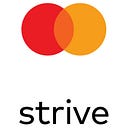New evidence on the effectiveness of SMS training for micro-retailers
Improving business practices by learning new skills is a key way to enable micro and small entrepreneurs to grow their businesses. Alternative methods of conducting training, such as by leveraging digital channels, offer a promising, easily-scalable, and cost-effective approach, though there has been a lack of definitive evidence and a need for further experimentation on their effect on small businesses. New research on Kenyan micro-retailers provides the first experimental evidence that training via SMS technology effectively helps drive the adoption of modern business practices, such as book-keeping and lending, and raises business profitability.
Each year, aid agencies and governments spend more than one billion dollars to train entrepreneurs in emerging markets. Traditional classroom-based training is often the most common approach, and one meta-analysis showed modest, but significant, improvements in the sales and profits of small firms across studies. It estimates that traditional business training leads to an average 5.6% improvement in sales and a 12.1% improvement in profits for small businesses. Traditional classroom-based training costs can range from $900 to $225 per participant, depending on the location and associated costs. However, how to increase the cost-effectiveness and scalability of these training initiatives remains a key knowledge gap for researchers and practitioners alike. Further, classroom-based training programs can have other inefficiencies, such as requiring small business owners to take time off from their daily operations to attend sessions (which are often held in urban centers), which may even more significantly impact business owners located in more rural areas.
Key findings from new research
In partnership with the Mastercard Center for Inclusive Growth, UC Berkeley, and Arifu (which is also a Strive Community partner), this experiment was executed as a credit relief and training initiative for Kenyan micro-retailers in the wake of COVID-19 as part of the Jaza Duka program. Arifu provided financial resilience training via automated SMS messages to the micro-retailers — a relatively cost-effective and scalable way to deliver training; this SMS training costs approximately $2.30 per user. Given that SMS doesn’t require a smartphone, micro-retailers with feature phones were also able to access the training.
Researchers used a randomized control trial to manipulate the timing of this SMS training — the treatment group obtained credit relief and the financial resilience training module during the holidays in December 2020, while the control group obtained the same in November 2020. The training focused on business skills, such as financial management, merchandising, safe financial practices, and business funding options. Implementing a pure control where micro-retailers received no training was impossible due to the research team’s equity concerns in providing financial resilience training during the ongoing COVID-19 pandemic. Instead, researchers designed the study so that the effect of SMS training on the treatment group may be regarded as a conservative lower bound of the effect of training on the firm revenue and the adoption of business practices. Researchers found that the timing manipulation successfully led to a higher intensity of received training by the treatment group. They suggest that this higher level of engagement may have occurred because the holiday season offers micro-retailers more spare time and opportunities to engage in training, as well as perceived greater value in training due to it being a favorable demand period.
Keeping the credit relief deployment constant, researchers found that the treatment group reported a better understanding of financials, higher adoption of better business practices like bookkeeping, higher monthly revenues, and overall greater financial resilience. In the short term (i.e., 3 to 4 months after training), micro-retailers in the treatment group reported 10% more prevalence of financial records with improved financial attention and understanding of financial concepts. Along with better knowledge and practices, the retailers also reported an increase of KSH 90,000 (approximately $825) in monthly revenue, constituting 60% of the average revenue. The effect continued six months after training when the researchers found increases in daily and monthly profits by 20% to 30%. Researchers also found that in the wake of COVID-19, the SMS training was effective for increasing future revenues and reducing the need to liquidate property to pay back loans.
Contributing to the evidence base for digital
This new research offers a valuable contribution to a small, but growing, body of evidence that explores the effects that digital training can have on improving small business outcomes. Researchers show that automated SMS training, which is easily scalable and inexpensive, can be effective in increasing small business knowledge and skills, leading to increased revenue and greater financial resilience.

